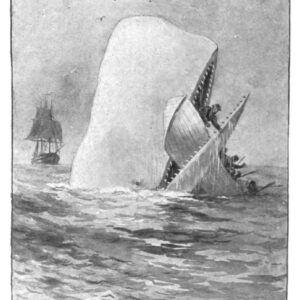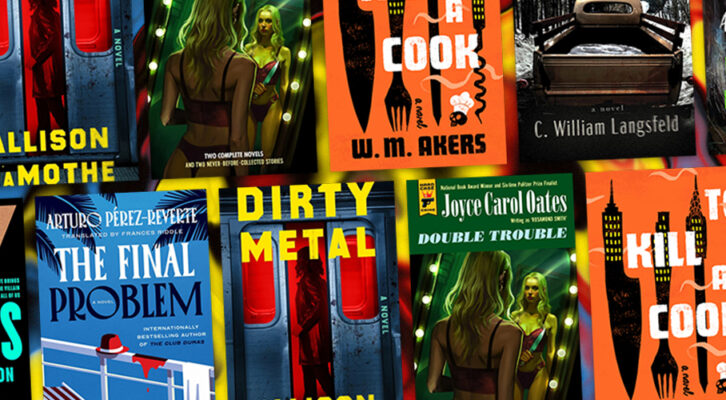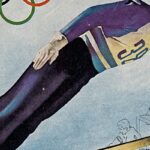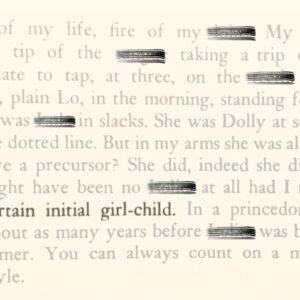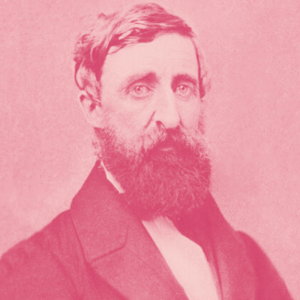
What It's Like to Be Told You Have Dementia
“Little bits of me feel like they’ve dropped off and gone missing.”
Leaving the memory clinic, I am slightly breathless. I feel thin-boned and insubstantial. Relief hasn’t yet flowed into the place where anxiety had been; I have a sense of being scraped out. But I’ve been reassured that I’m still on track. Those appalling blanks, those moments of addled vacancy when I scramble around in my mind for names, dates, certainty, a sense of connectedness to the world around me, are simply a product of age and normal forgetting. I unlock my bike, put on my helmet, cycle off, the wind in my face.
However kindly and tactfully it’s delivered, however parenthetical, it’s a sentence. You have dementia. We all know that we are going to die, but we don’t really know, not until we are sentenced. Dementia is a terminal illness, one that usually works with grinding slowness, chipping away at the mind’s sense of itself.
“Do I use the ‘D’ word?” asks Claudia Wald. “It depends.”
“I felt cold water running down my spine,” says Tommy Dunne in his little bungalow in Liverpool. Beside him, Joyce sits quite upright, her face calm, her hands folded on her lap. “I thought: ‘My life is over. I’ll become one of those people sitting in a chair. My family will come and visit me, first once a day, then once a week, then once in months, until they don’t come at all. Just me, a chair, a bed, a room.’” The countdown.
Claudia Wald says that to move from fear to certainty can be a relief, and Sube Banerjee agrees. “It can be really bad not to know. Of course, some people don’t want to, but by knowing you have access to care. Knowledge is power trumps ignorance is bliss.”
But still, the sound of the gallows being built beneath the window . . .
“I take my cues from them,” Claudia tells me. “I sometimes use euphemisms: it is possible to be honest while omitting some things. There is no simple rule: you have to respond to each person as they present themselves. I do not say: ‘It’s a progressive, relentless disease for which there is no cure,’ because how many people can live with that? You have to instill as much hope as possible; make them know they are courageous to come—and they are!—and that by coming they will be supported.”
The diagnosis of dementia may be a confirmation rather than a surprise—a small step across a shifting, blurred and arbitrary line. Nothing changes and yet everything does. The person is no different the day after the diagnosis than in the days before—they are in a world that’s both eerily the same and yet utterly changed and which can hold unspeakable terrors for those who are unsupported and unprepared. The bravery and endurance that the diagnosis requires—from the person who has the illness and from those who care for them—is very great. It shouldn’t have to be borne alone. Often it is.
The diagnosis of dementia may be a small step across a shifting, blurred and arbitrary line.
Andrew Balfour is a psychoanalytic psychotherapist and the CEO of the Tavistock Center for Couples Relationships, where he has developed the center’s “Living Together with Dementia” work. Both the affected individual and their partner are supported by therapeutic, person-centered interventions, particularly at the point of diagnosis, where couples can feel abandoned. He tells me of a time early in his career when he told a patient that he had dementia. He remembers watching him and his wife through the window of his room as they walked away, supporting each other, in a “very powerful image of distress and mutual love.”
The disease crept into my father’s life slowly and silently, no broken windows or alarm bells shrilling, just occasional rustles in the night, a creak on the stairs, odd things missing from their usual place but not missed. I don’t know when he suspected and I don’t know when we did either, or which came first. His mother had had dementia at a young age; his elder sister too. And my father had always been absent-minded—which is no indicator of dementia, but it felt like one, as if his future was woven into his benevolent, abstracted personality, the way he could disappear into his own secret world where no one could follow.
Fog thickened. His vagueness became a kind of lostness. His cheerfulness (perhaps a form of stoicism) was punctured by an anxiety that sometimes blighted his final decade, even when he was—this is one of those catch-all phrases that catches less than it drops—“living well” with the condition.
Time heals; time undoes. In those sliding-down years there wasn’t one thing, a particular event, though of course I look back now and I recognize the signs. When he struggled to remember the name of a flower that grew in the hedgerow. When his hand, holding a mug of tea, shook. When he lost his hearing aid yet again, lost track of what he was saying, lost his way (but we all do that). Scraped the car against a gateway. Left the key in the lock. When we asked him the time and he told us the cricket score (but he always was absent-minded). When on his face I would see an expression I didn’t recognize (but he was always a little mysterious: he stood just out of reach). We didn’t talk about it at first: when is the point at which you say, Do you think that something is wrong, that your memory is beginning to fail you?
That shape standing to one side, that shadow falling coldly—don’t give it attention.
There came a time when we all knew. He went to see a doctor; he had his memory test; eventually he received the sentence, hedged about with reassurances and strategies and tact, but there it was nonetheless: you have dementia. For me, it wasn’t a punch to the solar plexus, more like a soft nudge that pushed him over that moveable line—from knowing really to really knowing. In fact, I can’t even remember hearing the news.
My mother is a fighter; she believed that together they could face down the disease, hold it at bay and beat it. My father is a stoic. (Was a stoic.) He believed you must simply and with dignity endure what life hands you.
I don’t know what he felt about the diagnosis. A man of inwardness and reserve, he didn’t talk a great deal about his emotions and believed in getting on with things, no matter what. Up at the same time every day; make the breakfast, empty the dishwasher, mow the lawn, pay the bills, feed the birds, prune the roses, do the crossword; keep to the structure of the day, the week. That shape standing to one side, that shadow falling coldly—don’t give it attention. Keep looking ahead; not too far ahead, where darkness obscures the path, just a few paces.
His role in life had been one of steady competence: he was the protector and now he needed our protection, the carer, and now he needed our care. He had looked after the finances (long after he could handle money, he kept his soft leather wallet with him and would often take it out, looking through the old membership cards that were in there), the garden, done the shopping, read the map and driven the car. (Claudia Wald tells me that, for men in particular, the issue of driving can be a watershed: “It’s a further stripping away of the self.” It’s not uncommon that they refuse to take the test because of the risk of losing their license.) He had kept the house in order, fixed things that were broken. Now something in him was broken, or breaking.
To acknowledge vulnerability when his task had been to help vulnerable others was painful, almost impossible. He didn’t fall apart and he didn’t articulate his fears, but every so often he took to his bed, where he would lie under the covers, shaking. Life went on around him—the hum of the vacuum cleaner, the rise and fall of voices, the chink of cutlery, a phone ringing somewhere, a dog barking, cars outside, the smell of baking, of garlic frying, my mother coming softly into the room and standing beside him a while—and he would lie there until the shaking stopped.
*
Some people do fall apart, especially when the diagnosis comes at them like an ambush. Tommy Dunne had been told he was bipolar, and that was bad enough. But when he got lost in a car park and had a panic attack so severe that he was taken to hospital suspected of having had a heart attack, he found himself referred to an old-age psychiatrist.
“I thought, ‘Old-age? But I’m only 57.’”
The doctor told Tommy and Joyce that the good news was that Tommy wasn’t bipolar after all, and neither did he have a brain tumor. But he did have Alzheimer’s. We tend to think of Alzheimer’s as a memory-loss disease because, as Sube Banerjee put it, “Memory is more measurable.” However, Tommy Dunne’s particular version of the illness affects perception more than memory, is spatial as well as cognitive: “Little bits of me feel like they’ve dropped off and gone missing. Everything seems nearer than it is; puddles look like gaping holes; the escalator is a chasm. Then there are gaps and jump-cuts in time. I remember being on a bus journey that I was very familiar with, had done a hundred times, and suddenly I’d missed several stops and had to get off and go back in the other direction. It was like watching things on CCTV, things jerking forward.” He smiles at me, his round face strained. “I’m frightened of my own shadow, if I’m honest.”
Some people do fall apart, especially when the diagnosis comes at them like an ambush.
Their doctor broke the news gently, telling them it was the best dementia to have and that there were many things that could be done to help him. For Joyce, it was a relief. For Tommy, it was not. He immediately imagined himself at dementia’s end-stage, like one of Philip Larkin “old fools“ in his bitterly bleak poem of that name. Pessimistic, corporeal, viciously mocking but with no target to mock, the poem describes not simply anger and humiliation at old age but fear and disgust, when the mouth “hangs open and drools” and the body disintegrates into unlovely body parts: “Ash hair, toad hands, prune face dried into lines.” Tommy’s imagined future self filled him with utter dread.
Things changed only when he and Joyce went to a post-diagnostic group and Joyce volunteered him to be part of a group working on dementia (“He gave me a stare that would have stopped a galloping horse”). Grudgingly, he went along, and once there he found that speaking out “for my peers, the ones who don’t speak,” gave him confidence again. Bit by bit, he became an advocate and a spokesperson for people living with dementia: he had a purpose, a community and a status.
Tommy tells people that he meets he has dementia because he doesn’t want anyone to think he’s stupid. “I’m ill, that’s all.” He gets very tired (after he gives a talk he feels like he has run a marathon) and he gets very angry, and “I grieve every day for the person I was. I miss the Tommy I used to be. But I never say, Why me? Why not? It’s the straw I’ve drawn and I have to make the most of what I’ve got—like a torch won’t work without a negative and a positive. This is the best I can make.”
————————————————————
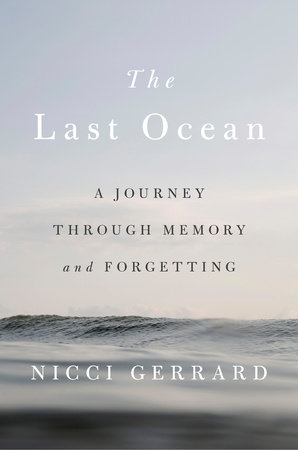
From The Last Ocean by Nicci Gerrard. Reprinted by arrangement with Penguin Press, a member of Penguin Group (USA) LLC, A Penguin Random House Company. Copyright © Nicci Gerrard, 2019.
Nicci Gerrard
As well as being a novelist, Nicci Gerrard is a journalist, a campaigner and a humanist celebrant. Nicci Gerrard writes for The Observer and is the co-author, with Sean French, of the UK bestselling Nicci French thrillers. In 2016 she won the Orwell Prize for Journalism, for a piece exploring dementia. Following her father’s death in 2014, she co-founded John’s Campaign which seeks to make care for those who are vulnerable and powerless more compassionate, and is now a national movement in the UK.









